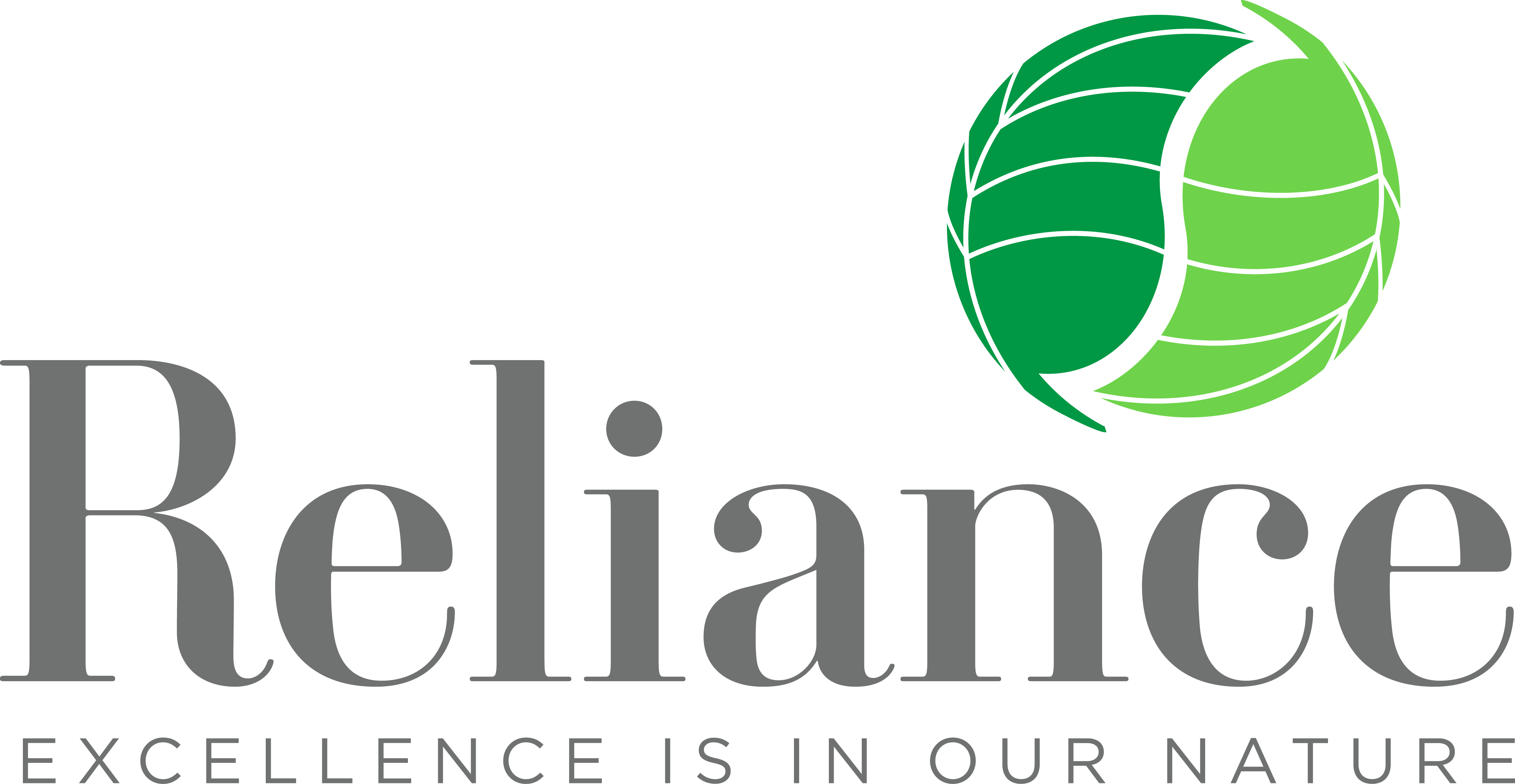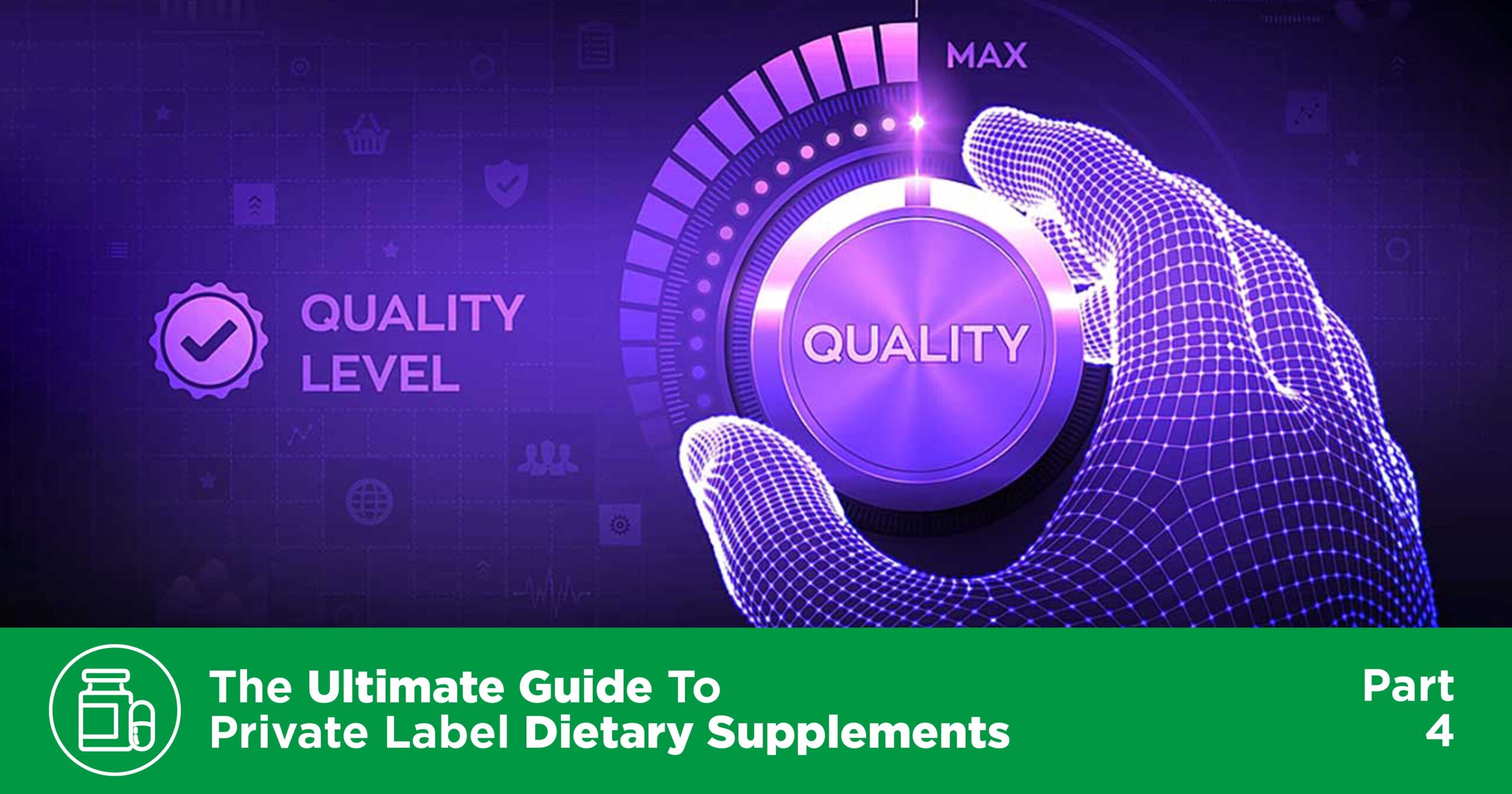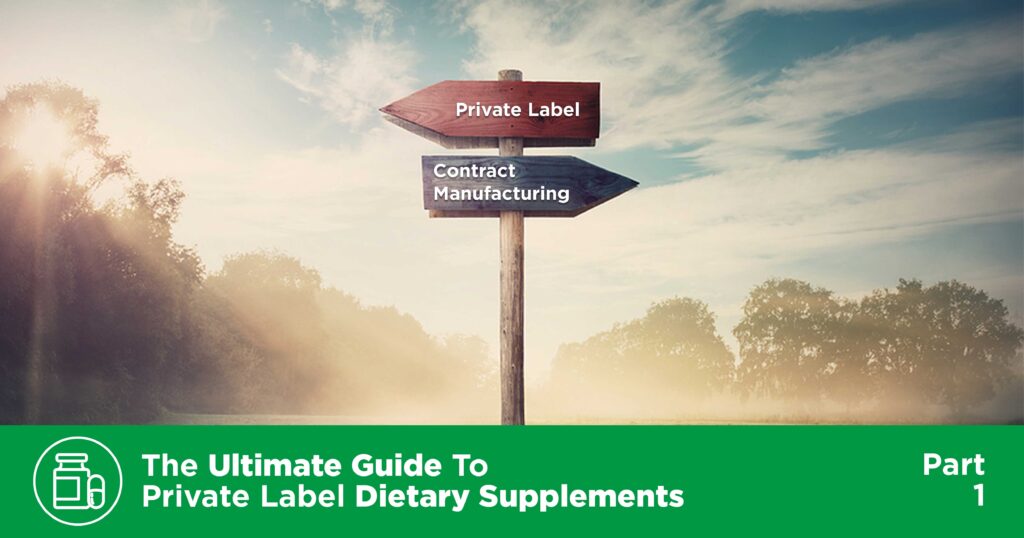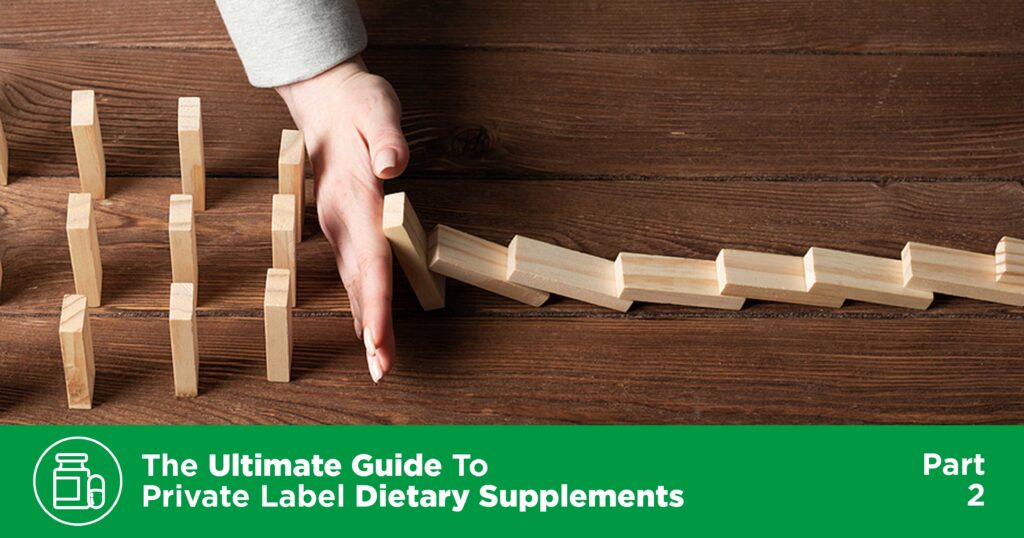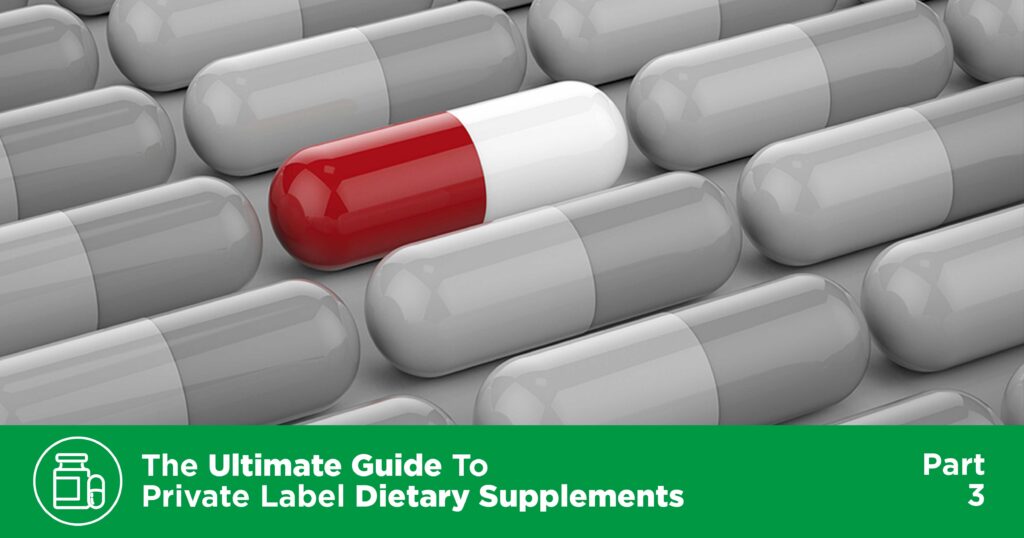This is part of our Ultimate Guide to Private Label Dietary Supplements, a complete overview of the key advantages of utilizing a private label program, the differences between private label and contract manufacturing, the biggest risks new brands might face, and the top 10 factors you should consider when choosing your private label supplement manufacturer.
Over the past decade, private label whole food supplement sales have continued to grow because of the value they can offer consumers. As we discussed in our post “An Introduction to Whole Food Supplements“, the rise in the number of health-conscious consumers and their desire for clean, natural ingredients have pushed manufacturers to up their game in terms of the quality and transparency of these products.
In our previous blog post “How to Manage the 3 Biggest Risks of Offering Private Label Supplements“, we talked about some of the risks associated with creating a custom formula – inventory management, labeling compliance, and formulation.
From a business perspective, leveraging proven private label dietary supplement formulas is an excellent way to launch or fill out a brand. In this post, therefore, we will highlight the two most desired benefits to be found in a gold-standard private label program: Quality, and Time-to-Market.
Dietary Supplement Quality
It is certainly true that not all dietary supplement formulas are created equal. Especially when preparing to go head-to-head with major national brands, the quality of a private label brand should be beyond question. Here are some easy ways to make sure the quality of the products is there, and that the consumer will be able to recognize and trust in that.
Certifications
An easy way for consumers to recognize a high-quality whole food supplement is to scan the label for any official seals, such as Certified USDA Organic or Non-GMO Project Verified. Organic supplements come from foods that are produced by methods complying with the standards of organic farming. This generally means restricting the use of certain pesticides and fertilizers, and employing various environmentally-friendly protocols in their manufacturing process. Non-GMO Project Verified is a mission-driven nonprofit organization offering a third-party non-GMO verification program. These seals, and others like them, are an easy way to communicate the high quality of a private label product.
Branded Ingredients
Something that isn’t common to find in a private label supplement, but that inherently provides value and quality, is the use of branded (also called patented or trademarked) ingredients. We discuss these in more detail in our blog entitled “How to Select a Private Label Whole Food Manufacturer.” These ingredients are listed on the supplement label accompanied by either a ™ or ® symbol, often also capitalized or in bold. Branded ingredients are registered with the US Patent and Trademark Office, have clinical research in support of their safety and effectiveness, and have undergone vigorous testing protocols to make sure their quality is of the highest standard.
Including these ingredients in a formula allows the brand to link the supportive studies directly to the product, which is a huge advantage to providing value to a product both in terms of safety and efficacy.
Whole Food Based
Also rare to find in a private label supplement is a true whole food based formula. As we discussed in our post, “What Makes A High-Quality Private Label Whole Food Supplement,” dietary supplement products can be made in a variety of ways. They run the gamut from being 100% synthetic to 100% natural, and technically, a supplement can be marketed as “whole food based” even if it contains as little as 10% of natural plant or food-derived ingredients.
An experienced private label whole food supplement manufacturer can provide formulas that stabilize and concentrate the naturally occurring vitamins and minerals in fruits and vegetables. This will allow for the same important claims and certifications mentioned above to be made on the labels, just as the big-brands often have, such as Certified USDA Organic, Non-GMO Project Verified, etc. To attain these certifications, each ingredient in the formula must be traced back to its origin to identify exactly how they were created. That is why having these seals on a private label whole food product will immediately convey the highest standard of quality to the consumer.
Time to Market
It is somewhat expected that the process for creating a custom formulation can easily take months, but many people don’t realize that in some cases, it can even take years. Some of the major milestones in creating a successful finished product are developing the formulation, sourcing the ingredients, ordering the packaging, designing the label, scheduling the production time, and testing for safety, quality, and efficacy. When creating a product with high standards, these processes cannot be rushed. Therefore, another advantage to utilizing private label products is the huge amount of time that can potentially be saved when trying to get a new product to market.
Faster Turn-around Times
Using private label products can significantly help to shorten the turn-around time for product orders. Usually, these products are made on a regular schedule, so they should have a healthy expiration date to start with. They are produced with current volume needs in mind so that when an order comes in, it can be quickly pulled off the shelf, labeled, and sent right out the door, saving months of time in development, sourcing, scheduling, and production.
Market Research/Data Collection
Another phase of the process that can take up a lot of time is the gathering of data or assessing the market opportunity for a product. For example, a new product may be positioned to offer a unique health benefit, or introduce some new ingredients that the consumer might be less familiar with. It is often not the best plan to launch something brand new without first determining the possible side effects, noticeable benefits, or other experiential facets of the product (such as it having a bad taste or being difficult to swallow.) Offering a tried-and-true, tested, and well-received product can save a lot of time in the test-market / feedback-gathering stages of development.
Finished Product Testing
We discuss in detail the different types of testing that can (and should) be done throughout the manufacturing process in our blog post “Quality Control and Testing Throughout the Probiotic Manufacturing Process.” This is something that can only be done to a certain degree with a new formulation, via accelerated stability testing. While this type of testing can be useful, real-time stability testing is the most accurate way to determine the shelf life of a supplement, and this is another advantage of using a pre-established stock product.
Summary
In order to provide private label dietary supplements that are high-quality and trustworthy, they must be manufactured in a cGMP certified (Certified Good Manufacturing Practices) facility. The most trusted of them will have undergone advanced research, development, and quality control methods and will have passed various testing protocols.
To compete with the major brands and provide great value to the consumer, the best private label supplement products will also include distinct points of differentiation, such as trademarked ingredients, which will lend scientific support to the formula, official seals on the label (such as Certified USDA Organic,) or add value in another way, such as being vegan or whole food based.
Lastly, these products should offer the additional benefit of having a fast time-to-market. This will help make it possible to quickly enter a new category segment, test out a new ingredient, or see which flavors or product formats are most successful while minimizing risk.
